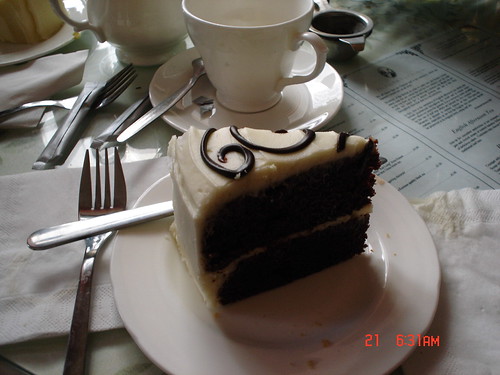Hi!
sabato 24 novembre 2007
Uno, dos, tres...
Do you know YouTube?

I think that YouTube is a fantastic tool since you can find videos dealing with every topic and for every purpose you want. I knew YouTube even before Sarah introduced it to us; I used it mainly to find funny videos, but I never thought about it as a learning tool! Thanks to Sarah, I discovered that in YouTube you can find interesting videos that can teach you how to do several things. I think that the next time I want to learn something more about how using computers I will look for a good YouTube video! LOL! Since many files are in English, you can also improve your English listening skill, your vocabulary, and your pronunciation. Great!
YouTube can be useful for teachers too; they can find interesting videos that can be used in order to teach in a different and more involving way some subjects that students often consider boring. In TeacherTube I found some good video files that deal with several topics, such as physics, mathematics, informatics, and that can be an effective support when teaching.
In YouTube you can find also funny videos; Sarah suggested us two files which I find brilliant! When I saw the one about the translator I couldn’t stop laughing! The second one was a satiric video that parodied Bush’s foreign policy and the sad situation in Iraq. I particularly appreciated the puns such as I-rack/Iraq and I-ran/Iran, or the double meaning of some words, such as ‘rack’.
YouTube, however, has also negative aspects. Since everyone can add his/her own video, you may find some files that aren’t good; information conveyed could be inexact, language can be used improperly, and both comment and videos can be full of grammatical mistakes or vulgar.
In conclusion, I think that YouTube is an excellent tool in order to find audio and video files dealing with several topics, but people should be aware that they can find both good and bad stuff. As a matter of fact, teachers should control the videos they want to employ as teaching material before using it.
giovedì 15 novembre 2007
Let's podcast!

photo by Astrangegirl
I think that podcasts are an excellent way of improving your English; you can train your listening and comprehension skills and you can enrich your vocabulary, pronunciation, and style. They are completely free, so everyone can take advantage of this fantastic tool. Cool!
You can subscribe to podcasts syndication feeds, so that you can receive new and interesting video and audio files as soon as they are available on the Web. In this way, you have always recent material at your disposal.
As Sarah pointed out, another important advantage of podcasts is that they can be used whenever and wherever you want to. You can listen to or watch them not only on your computer, but also bring them with you on your mp3. Fantastic! I never thought to the possibility of listening to several English conversations and videos each week while traveling by bus!
I surfed the Net and I used del.icio.us to find some useful podcasts; I chose these three good podcasts about English learning.
- The British Council Podcast is a wonderful website where you can find many audio files about several topics. You can listen to them and then read the correspondent audio scripts by clicking the ‘script’ link. Here you can find also some exercises that can be useful to check your comprehension skill. The content of the website has been written by English teachers and educationalists. There are many links to interesting English websites.
- The Business English Podcast is an excellent resource to improve your listening and comprehension skills; you can find audio files, the texts scripts and exercises to check what you’ve actually understood. Conversations concern mainly suggestions to improve your business English, your intonation, pronunciation and style in the working field. It’s very useful both for students and workers!
That’s all for now!
Veronica
martedì 13 novembre 2007
It's really Del.icio.us!

If I found an interesting site and I wanted to save the URL, I could write it down on a piece of paper, or save it using the ‘Favorites’ button. If I lost the piece of paper or I used another computer, I had to search the URL again. What a pity!
Fortunately, Sarah taught us to use another useful tool that lets us save time: Del.icio.us. It is a social bookmarking website that allows you to save, store, and share your favourite websites online.
Del.icio.us is completely free and can be accessed from any computer; after having registered, you can start searching for the websites that interest you. You write one or more tags and Del.icio.us finds all sites that had been saved with those tags. You will find a relatively smaller number of sites than that retrieved using a searching engine, but these sites are surely more pertinent! It’s fantastic! You can also see how many people saved a certain website and what they wrote about it on their notes. Their comments can really make your search easier!
You have the possibility to create a list of your favourite websites; for each of them, you will be asked to write the URL, a short description, your notes and the tags. Your bookmarks are public; this means that everyone can read them. This activity, in fact, is called ‘social bookmarking’ since it’s a sort of mutual exchange: you can read and use others’ bookmarks and they can use yours. It’s wonderful!
Finally, you can create your network in Del.icio.us, by saving the usernames of the people you want and check their favourite websites. I added my peers on my network and I checked their ‘Favorites’; I liked very much the work they did and I chose to comment one bookmark for each peer.
- Silvia’s choice: Wordreference
“This website contains free online dictionaries. It can be very useful when you're translating! As a matter of fact, it contains both monolingual and bilingual dictionaries.” (Silvia)
I chose this bookmark, since I use it every time I had to translate a text. It’s really useful! It contains English, French, German, and Italian dictionaries and there is also a forum where people can discuss about their doubts when translating a word or a sentence into s foreign language. Cool!
- Marina’s choice: Web Concordance
“A useful tool when you need to know a collocation. You simply have to write a word and the concordancer will give you a list of examples from the corpus you have chosen.” (Marina)
I think this is a very useful tool, especially when you want to use a word, but you aren’t sure about its position and context. I had already used a similar tool when I wrote my paper and I found it fantastic! I had to search for the occurrences of several words and, without a specific programme of web concordance, it would have been impossible to do my searches!
- Elena’s choice: Randall’s ESL Cyber Listening Lab
“A free resource for ESL students who want to practice their listening skills. There are many listening quizzes (Pre-listening/Listening/Post-listening activities) dealing with several topics taken from everyday conversations, but also from interviews.” (Elena)
I found this website really interesting and useful; I immediately tried to practice my listening skills, and I think I will use this fantastic tool very often! I appreciated the fact that I could choose the level and the topic I preferred. Among my ‘Favorites’, I saved two websites that contain grammar exercises and listening quizzes!
- Camilla’s choice: How to use English Punctuation
“Small and useful guide to the use of English punctuation.” (Camilla)
I think that this is a concise, but very clear and useful guide to the correct use of English punctuation. I saved another website about this topic among my ‘Favorites’; I think that English punctuation is sometimes very different from the Italian one and many doubts can arise when translating a text into English. For this reason, an easy online guide can be really helpful!
- Martina’s choice: National Public Radio in US
“You can access hourly news summaries and 24-hours programme stream. It’s a US public radio.” (Martina)
I think that it is a useful website where you can find a large number of news regarding several topics. You can learn a lot about the world’s news and you can also listen them; in this way, you have the possibility to improve your listening ability.
That’s all for the moment! I hope you enjoyed reading my experience and my opinions about Del.icio.us!
Veronica
lunedì 5 novembre 2007
Four good reasons to celebrate Halloween!
Hi!
Last week was the 31st October… Halloween! I saw some children go for trick-or-treating in my village, and this makes me happy! There are several reasons for celebrating Halloween also in Italy:
- First of all, Halloween is an occasion to meet people and stay together for a night. It is then a way of socializing and making the acquaintance of new people!
- At Halloween, people (especially children) have fun, since they can wear fancy dresses and go for trick-or-treating and eat a lot of sweets!
- People can also express their creativity and their immagination, since they have the chance to create their own fancy dresses (that, in my opinion, is better than buying them already made!), to put on bizarre make up…. And make their own jack-o’-lanterns! Personally, I never made my own carved pumpkin, even if I would like to. Since I was a child, I’ve always made carved oranges and mandarins! It’s very easy to make them and they are so cute and funny! I found this interesting website that explains how to make your own Halloween pumpkin! The website is clear and nice: instructions are accompanied by photos, which show different stages of preparation; in this way you can check your work step-by-step! You can find also many suggestions, alternative methods and useful links. This website will be surely useful next year, when I will try making my first jack-o’-lantern!
- Some people think that celebrating Halloween is a sort of ‘Americanization’, since this holiday is embraced mainly by Americans. I think that this is not true, since Halloween originated in Europe! According to Wikipedia, Halloween “has its origins in the Gaelic festival known as Samhain, […] which was a celebration of the end of the harvest season in Gaelic culture”. This holiday was then influenced by many Roman traditions, when the Romans occupied Celtic territory. Halloween was then imported to North America, when many Scottish and Irish people immigrated there in the 19th century. For these reasons, Halloween is not a new holiday introduced by Americans, but is a part of our European culture!
Happy Halloween!
Veronica
sabato 3 novembre 2007
Bloglines

Few days ago on the lab we learned what an aggregator is and how it works. Before Wednesday I never heard about this word and I did not know what it was. Sarah explained us that an aggregator is a useful tool that collects syndicated Web contents and organizes them in a very clear way, so that you could easily retrieve and read them on a Web page. After having downloaded or registered for an aggregator, you can subscribe to various websites and blogs and you can receive updates. I learned also that RSS (‘Really Simple Syndacation’) and XML are languages that are used to transfer the information on a site in a standard format.
On the lab we started using Bloglines aggregator; it is a very useful tool that allows you to check if the websites or blogs you are interested in have been updated; it makes you save time, since you do not need to type every time the URLs on the bar when you want to see whether there are news. However, if you want to have a look at the entire websites, not only the latest news, useful links are provided.
Bloglines is completely free and can be accessed from any computer. Moreover, it is very easy to use: when you create your own account, you are required to give only your e-mail address and your password. Then you have simply to subscribe to and add the URLs of the websites and blogs you are interested in using the ‘Feed’ button (For example, I added some websites about dogs, English learning, gossips and cooking recipes). If you are registered for many websites, you can also organize information creating playlists. Unlike your personal blog, your pages on Bloglines, as well as the way you organize them, are absolutely private and nobody can see them.
That’s all for now!
See you on Monday
Veronica







